Hi, I’m Susan, and I know how frustrating it can be when you keep forgetting the words you’ve worked so hard to learn. Don’t worry—you’re not alone! Vocabulary is super important, but it can also be the trickiest part to hold on to. That’s why I’m here with some simple yet effective tips to help you stop forgetting new words and start using them confidently in your everyday life. Let’s dive in!
1. Learn a Word of the Day—And Actually Use It
Let’s start with something simple but powerful. Learning one new word every day is a great way to build your vocabulary, but the real trick? Actually using it! It’s not enough to just read a new word—you’ve got to bring it to life. Try slipping it into a conversation with a friend, or writing it down in a sentence. Use it at least a few times that day to really make it stick.
With Praktika’s Word of the Day feature, it’s easy to develop the habit of learning new vocabulary. Each day, you’ll get a fresh word to explore and practice with your favorite avatar. Remember—just learning it isn’t enough. You have to live it. Whether you’re chatting with a friend, writing an email, or even talking to yourself (it works!), using the word in real-life situations helps lock it into your memory.
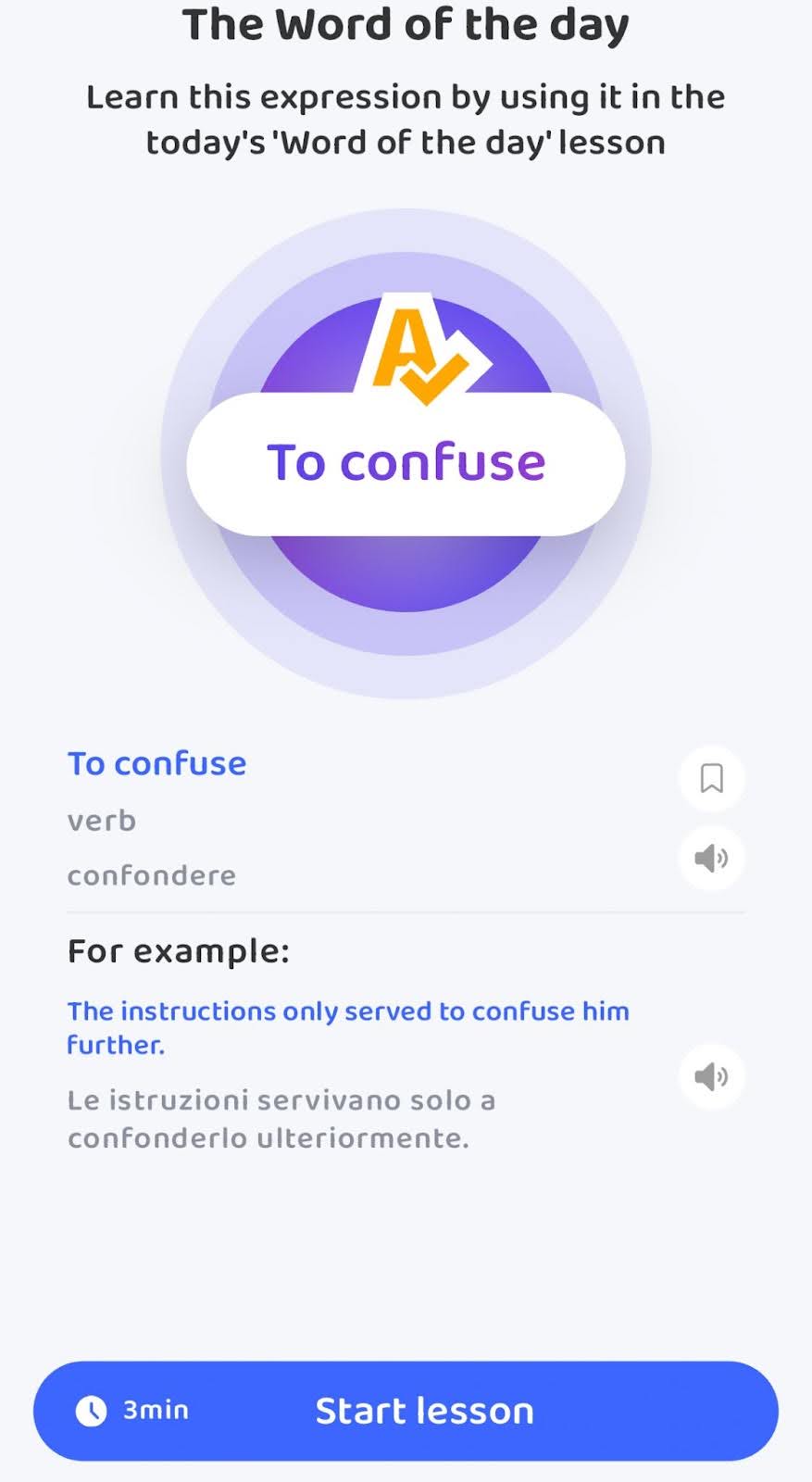
2. Context is King: Learn Words in Meaningful Sentences
Memorizing single words can feel like trying to remember random puzzle pieces without ever seeing the full picture. That’s why context is king when it comes to learning vocabulary. Instead of memorizing words on their own, try learning them in meaningful sentences. This makes it easier to see how the word works and sticks in your mind longer.
For example, learning the word “serendipity” is great, but if you use it in a sentence like, “It was pure serendipity that I ran into my old friend at the café,” you’ll understand it so much better. Quick note though—serendipity isn’t really commonly used! Here’s another example, the word “ingredient” can be used in a restaurant to ask, “What ingredients are in this dish?” That’s why Praktika’s contextual learning is a game-changer.
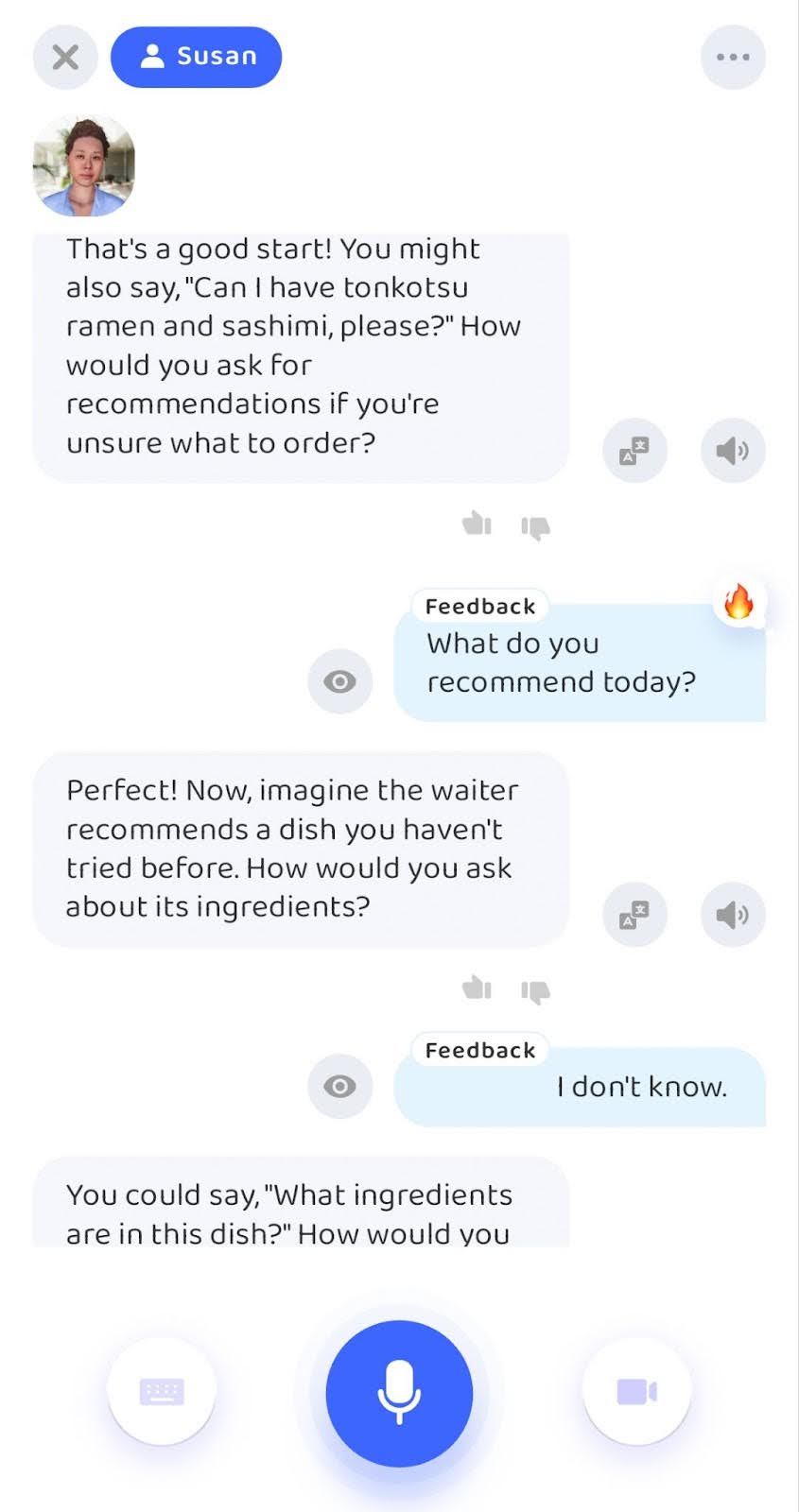
We immerse you in real-life scenarios where new words come up naturally, so you’re not just memorizing them—you’re living them! It’s a lot more fun than dry vocabulary lists, I promise!
3. Review, Review, Review
Repetition is your best friend when it comes to learning vocabulary. I know it might sound boring to go over the same words multiple times, but trust me—this is how your brain locks them in! The more you review, the more familiar the words become, and before you know it, they’ll feel like second nature.
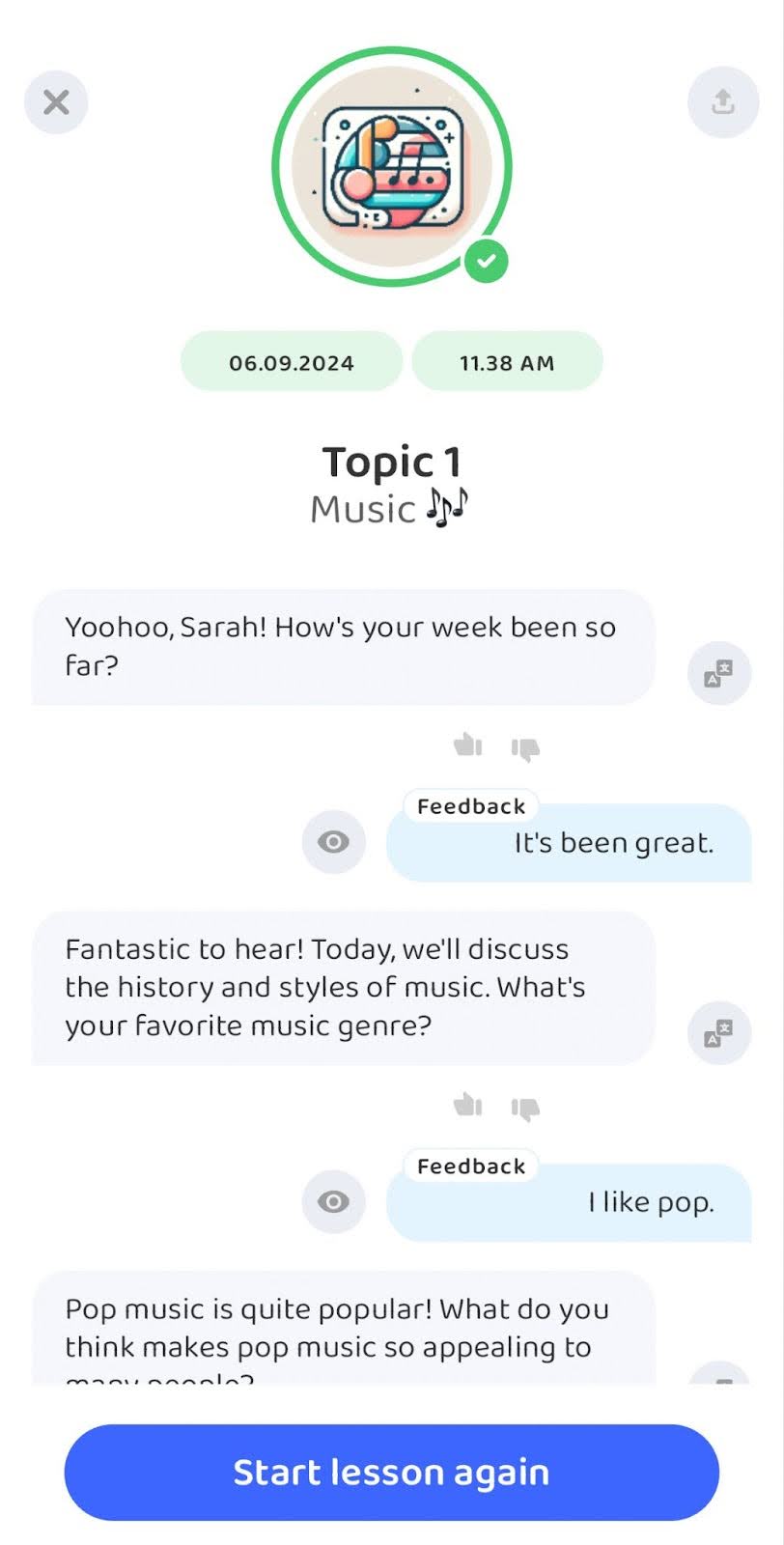
Don’t worry about “overdoing” it—reviewing isn’t about memorizing; it’s about reinforcing what you’ve already learned. My colleagues and I understand that everyone moves at their own pace, and sometimes, you might need to revisit certain topics more than once. That’s why our review feature is here for you. You can go over lessons as often as you like, without any pressure. Need to brush up on those tricky words from last week? No problem! Just keep revisiting them until they stick. Whether it’s vocabulary, phrases, or grammar rules, you can take your time to master each aspect. Soon enough, you’ll find yourself using those words confidently in everyday conversations. So, go ahead and review—it’s the secret to long-term success!
4. Create Mental Associations
Here’s a fun tip that really works: make mental associations to help new words stick. When you learn a word, try connecting it to something you already know—like a memory, an image, or a familiar feeling. This little trick makes vocabulary much easier to recall.
For example, if you’re learning the word “serene,” picture yourself relaxing on a quiet beach, feeling calm and peaceful. Suddenly, the word “serene” isn’t just a random vocabulary word—it’s tied to an experience that feels familiar. That’s the magic of mental associations.
Try this with every new word you learn. The more creative and vivid the association, the better it works. This way, you’re not just memorizing words—you’re creating connections that make them harder to forget. Trust me, it makes vocabulary learning a whole lot more fun and effective!
5. Practice with Role-Play Scenarios
Learning vocabulary is one thing, but using it in real-life situations is where the magic happens. That’s why I love role-playing—it lets you practice new words in a realistic setting. Theory is great, but practice? That’s where you’ll really see your progress.
With Praktika’s role-play scenarios, you can immerse yourself in everyday situations—like ordering coffee, navigating the airport, or asking for directions. These scenarios help you use your new vocabulary naturally, in the kinds of conversations you’d actually have.
For example, instead of just memorizing the word “order,” you’ll practice saying, “I’d like to order a latte, please.” This way, words aren’t just floating around in your head—they’re ready for action in the real world! So, next time you find yourself in a café or a new city, you’ll feel confident and prepared to use your growing vocabulary.
6. Write It Down
One of the best ways to remember new words? Write them down. There’s something about the physical act of writing that helps your brain process and retain information better. I always encourage learners to jot down new words they come across—whether it’s in a notebook, a journal, or even on your phone. It’s a simple, but powerful, habit.
When you write things down, your brain gets an extra layer of exposure to the word, which helps cement it in your memory. You can write full sentences, short notes, or even keep a vocabulary journal to track your progress.
Try writing down the word, its meaning, and then a sentence using it. For example, if you’re learning the word “serene,” you might write, “The beach was serene, with no one else in sight.” This process doesn’t just help you remember the word—it helps you own it, making it part of your active vocabulary!
7. Use Mnemonics to Make Words Memorable
Here’s a classic memory trick that never gets old: mnemonics! Mnemonics are little memory aids that turn tricky words into fun stories, images, or phrases, making them easier to remember. I love using this technique because it brings creativity into learning, and it really works!
For example, to remember the word “benevolent” (which means kind or generous), you can create a fun phrase like, “Ben loves to give.” Suddenly, the word sticks because you’ve linked it with something simple and easy to recall.
You can make up your own mnemonics for every new word you learn. The sillier and more creative, the better! Mnemonics turn learning into a playful activity, and before you know it, you’ll be recalling words with ease. Give it a try—you might be surprised at how effective this little trick can be!
8. Set Vocabulary Goals
Let’s make learning a bit more goal-oriented, shall we? Setting specific vocabulary goals can really boost your progress and keep you motivated. Instead of just learning words randomly, set a clear target for how many new words you want to master each week. Maybe it’s five new words or even ten—whatever works for you!
Once you set your goals, track your progress. You can use a notebook, an app, or even just a list on your phone. The fun part? Celebrating those small wins! When you hit your weekly goal, give yourself a little reward—whether it’s a favorite snack or extra time relaxing.
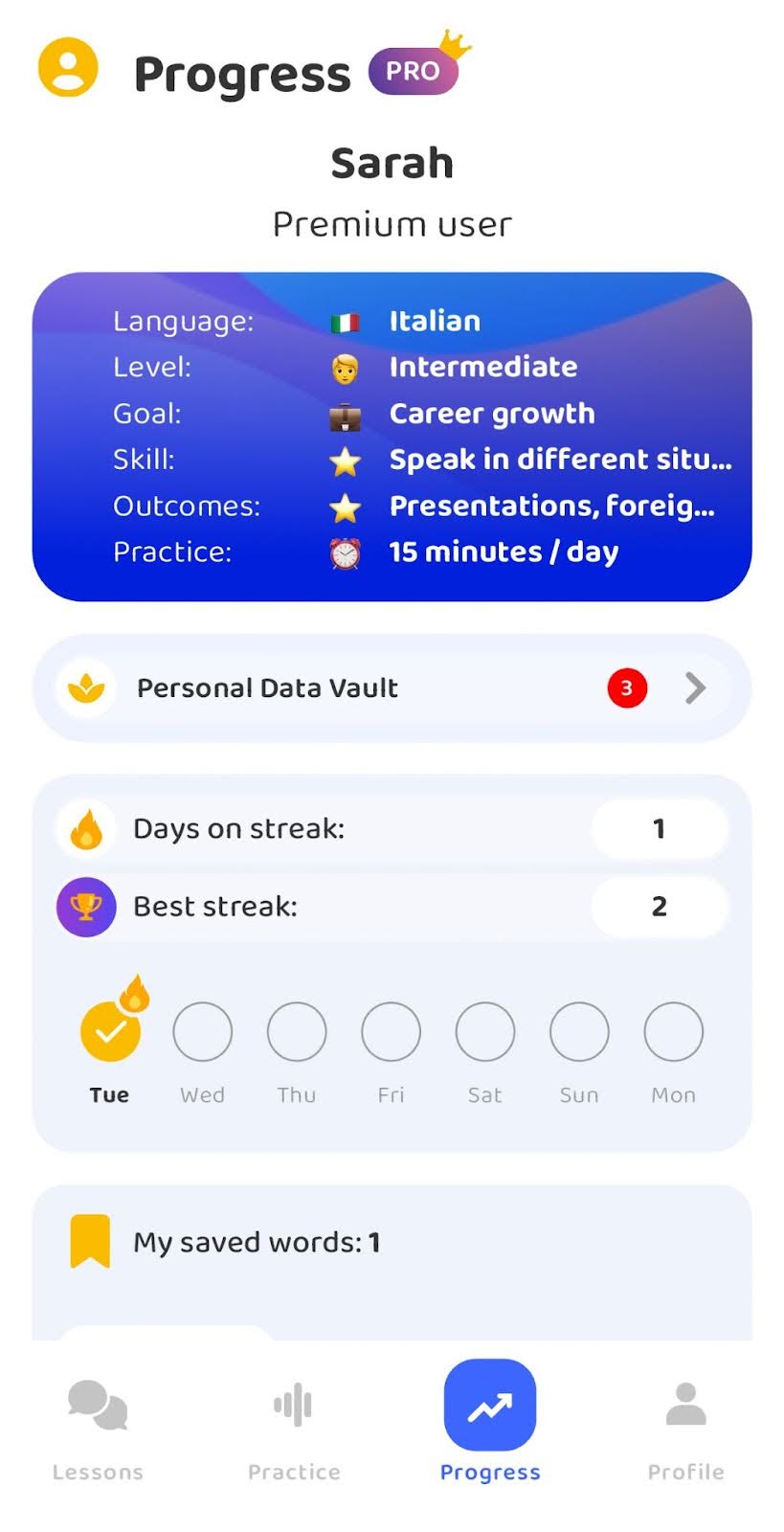
Praktika helps you stay on track by creating a personal study plan that includes vocabulary goals tailored to your needs. You’ll be able to see how far you’ve come, and trust me, hitting those goals will feel great! Keep it fun and focused, and watch your vocabulary grow with every week.
9. Speak Aloud
Here’s a tip that’s easy to overlook but super effective: speak aloud! When you say words out loud, you engage more parts of your brain, which helps you remember them better. It’s one thing to think about a word, but hearing yourself say it can make all the difference.
Try this next time you learn a new word: say it out loud several times. You can even build it into a sentence or a conversation with yourself—yes, talking to yourself is totally fine when you’re learning! For example, if you’re practicing the word “enthusiastic,” say, “I’m enthusiastic about learning new words today!”
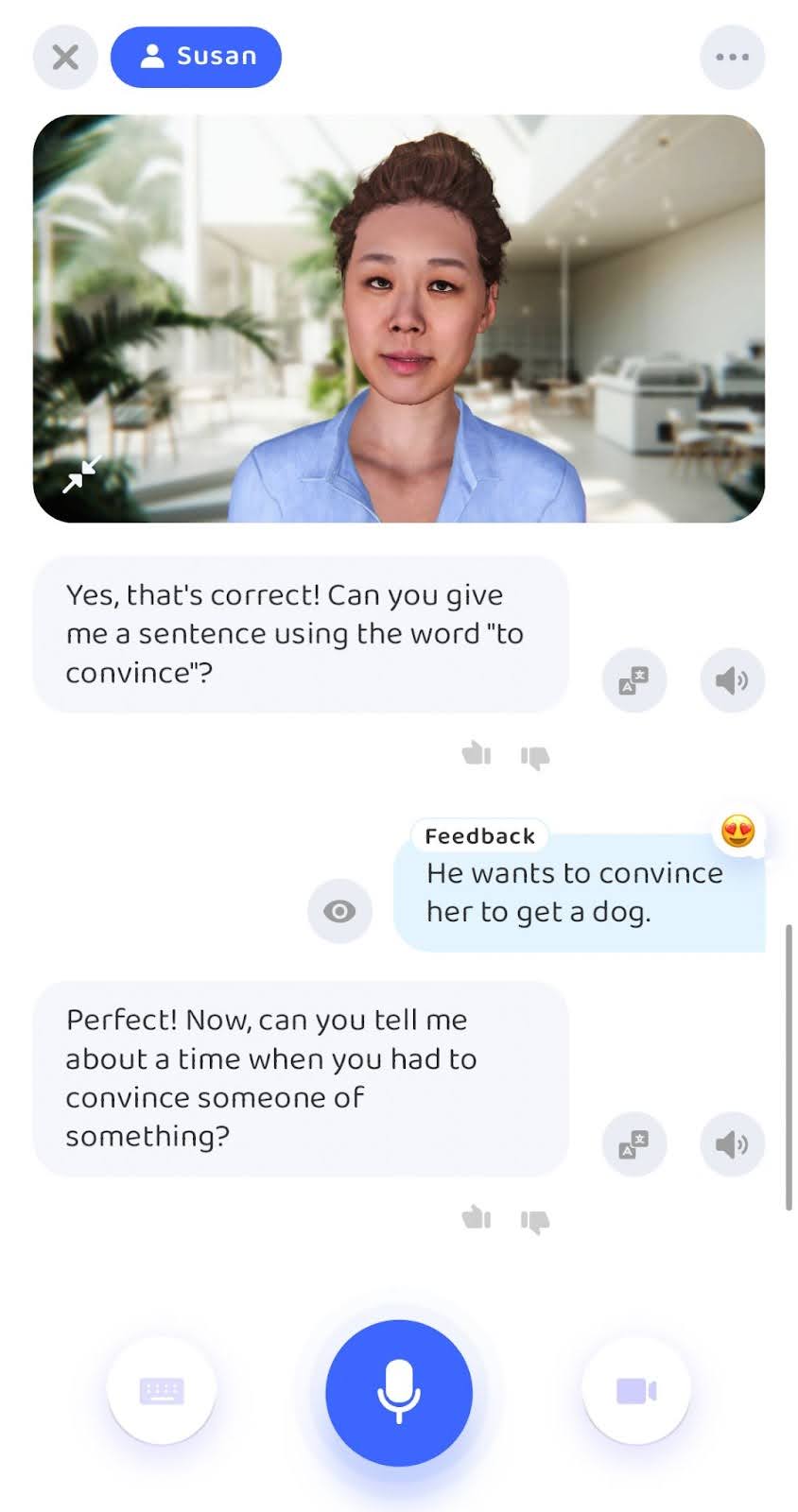
Speaking aloud also helps improve your pronunciation and builds your confidence. The more you get used to hearing yourself use new vocabulary, the more natural it’ll feel when you use those words in real conversations. So go ahead—don’t be shy, give the word of the day lessons a try!. Give your new words a voice!
10. Use Your New Words in Conversations
Learning new words is great, but using them in real-life conversations is where the magic happens! If you want to make sure those new words stick, don’t let them just sit in your head—bring them into your daily chats. The more you use your new vocabulary in conversation, the faster it becomes part of your active language.
Next time you’re chatting with a friend or even writing an email, try slipping in one of the new words you’ve learned. For example, if you’ve just learned the word “curious,” say something like, “I’m curious to know what you think about this.” It doesn’t have to be complicated—just find a natural way to work the word into your everyday conversations.
With Praktika’s conversational practice, you’ll have plenty of opportunities to use those new words in real-life situations. The more you use them, the more confident you’ll feel—and soon enough, they’ll be second nature. So, let’s get talking!

From Susan
Susan is your insightful AI English tutor from Praktika. With a PhD in Anthropology and a background in consulting for international companies, she brings a wealth of cultural knowledge to her lessons. Whether you’re exploring English for travel, living abroad, or career growth, Susan’s expertise in multicultural business environments will help you master the language with confidence.
